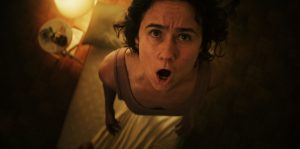
NEW TO THEATERS! From its opening aerial shot on a public beach, the slow-burning Swedish thriller Knocking almost immediately declares itself as a film that prides itself in its shot compositions. Our protagonist Molly (Cecilia Milocco) is enjoying a lazy afternoon on its shores as her girlfriend announces she’s heading out for a swim. As Molly drifts back into her slumber, we only hear a scream as the screen fades to black. It’s a powerful punch of an opener, and even at a crisp 80-minute runtime, first-time director Frida Kempff is incapable of maintaining that tension despite numerous good attributes throughout.
Our next encounter with Molly finds her completing a stint at a psychiatric hospital, assuring them (and herself) that she is mentally prepared to enter back into the world outside. We are kept in the dark as to exactly what happened that fateful day, but Milocco’s tightly coiled performance tells us all we need to know. She arrives at a high-rise apartment complex where, aside from it appearing rather stark, the normalcy of life seems to seep in and provide her momentary comfort.
However, when Molly begins to exhale and start life anew, she begins to hear a tapping through her room, apparently coming from somewhere upstairs. The knocks appear to have a pattern to them, not merely a clumsy scuffling about from an inconsiderate neighbor. Molly begins to fixate on the knocking’s source, first venturing upstairs on her own to confront those above, then taking more extreme measures involving local authorities and attempting to “decode” the thumps from above. She sees this as an opportunity to save someone, something that she was unable to do in the opening.
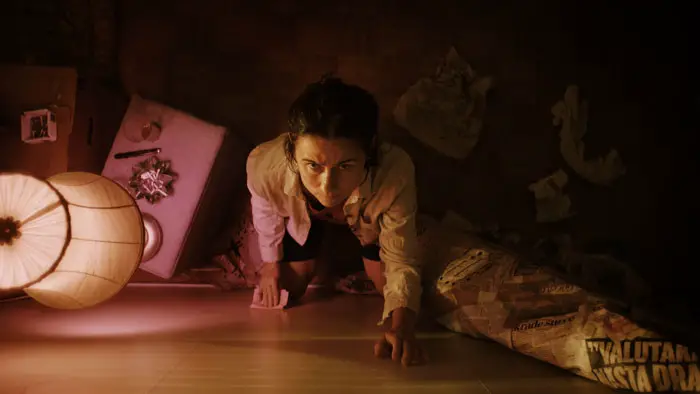
“Molly begins to fixate on the knocking’s source…”
Knocking relies heavily on Milocco, who is front and center throughout most of the runtime. Kempff mounts the camera directly to the actress as she scrambles from room to room, looking for answers. It’s a bravura performance, as Molly says little and hides much of her emotion behind a tight-lipped semi-smile.
But there is only so far Milocco can carry the production. The story takes us slowly through its funhouse-mirror of reality that provides hints of more narrative threads that never develop. For instance, we see Molly dressed up and walking to the local bus stop, only to be greeted with awkward stares from another waiting passenger. Molly looks down at her bare feet. The problem is that in the previous shot, she was clearly wearing shoes. Was it her fractured memory? Was she even at the bus stop? Has she even left the psych ward?
Knocking repeatedly leaves these breadcrumbs to nowhere but also attempts to narratively wrap up everything with some clarity in the final moments. It’s perfectly acceptable to play with the audience, but screenwriter Emma Broström fails to provide us with a starting reference point, so it’s truly difficult to give weight to any of the consequences. She seems to want to make a statement about mental health but also uses it as a narrative crutch at the same time.
It’s unfortunate that Knocking is so muddled as Milocco is thoroughly engaging. Plus, Kempff demonstrates a visual strength and confidence that will serve her well when she gets ahold of a script that is a bit more grounded than the one here.
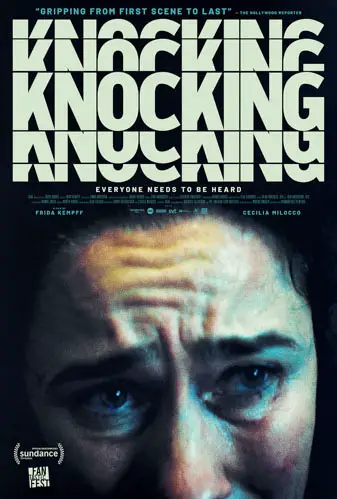
"…Milocco...[gives] a bravura performance..."
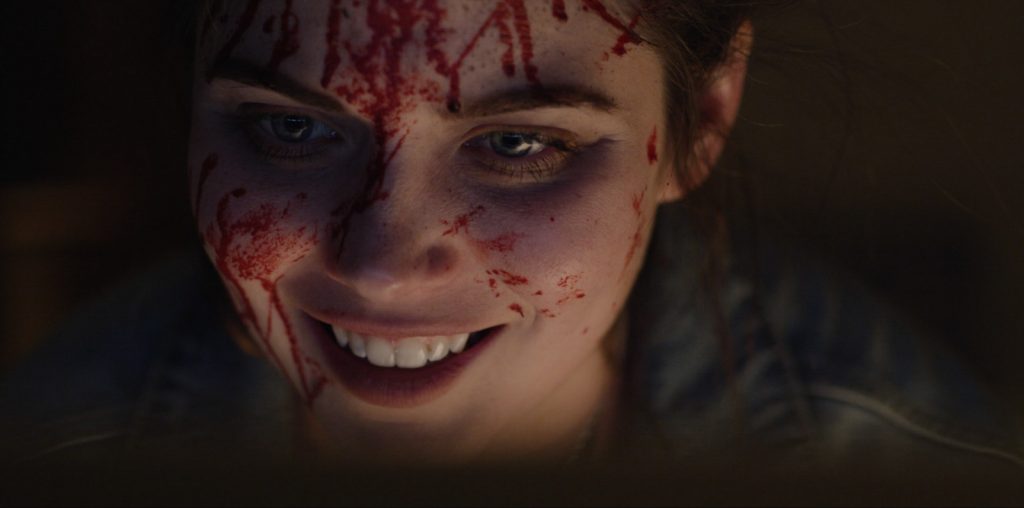
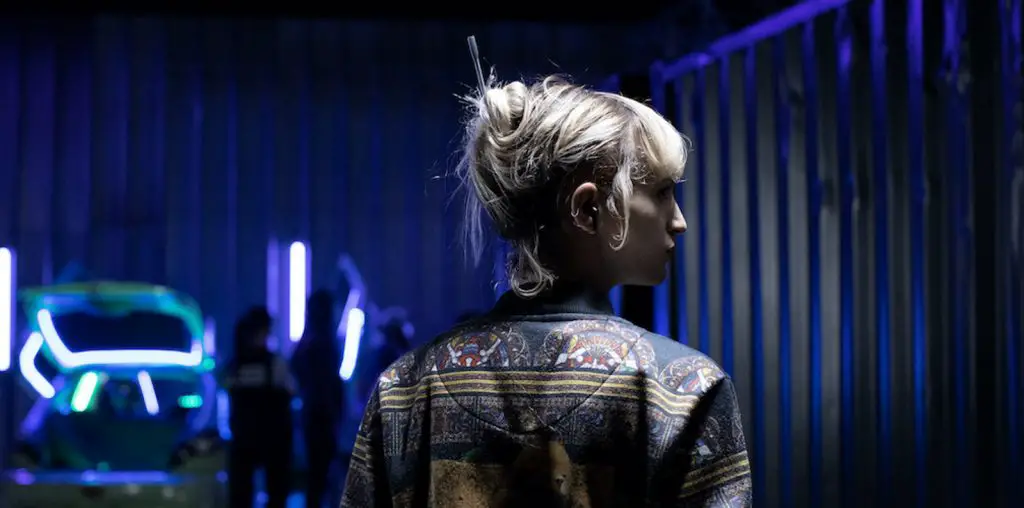
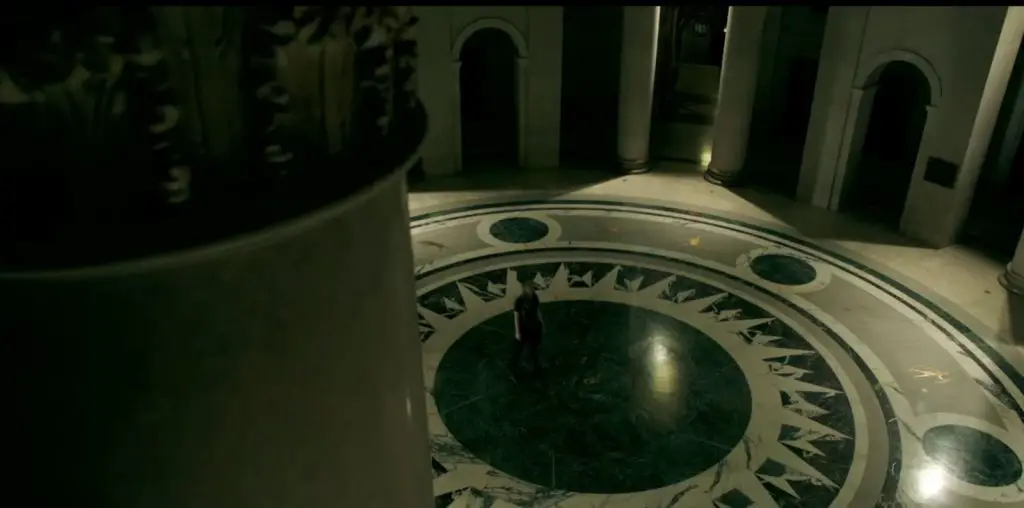
[…] post Knocking first appeared on Film […]